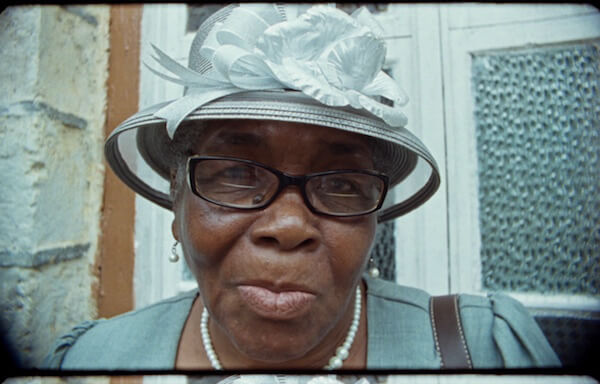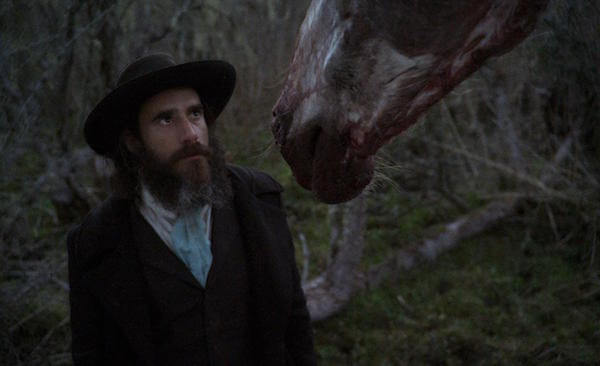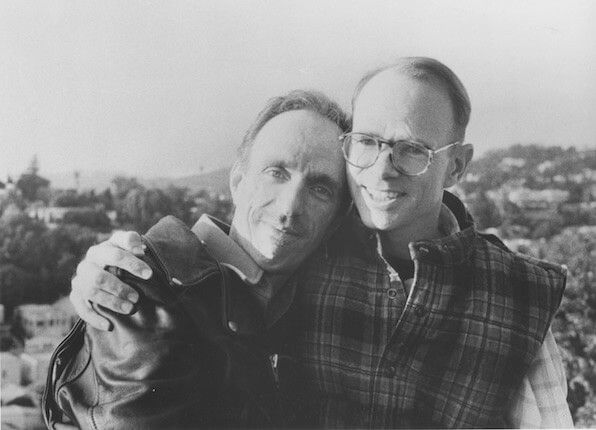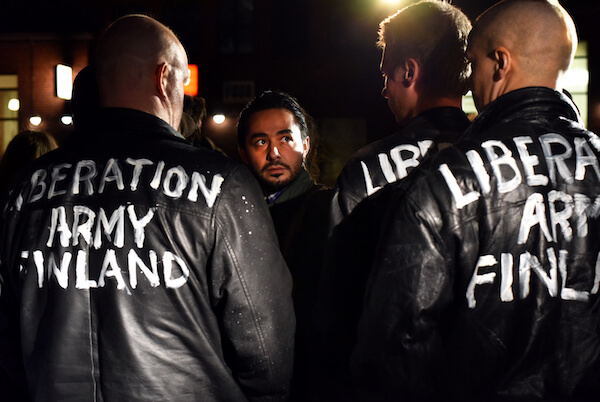This year’s Rendezvous with French Cinema program — the festival’s 21st — opens March 3 with the premiere of Guillaume Nicloux’s “Valley of Love,” starring French icons Isabelle Huppert and Gérard Depardieu as a couple reconnecting after their son’s suicide. The festival closes March 13, with a screening of Jacques Audiard’s “Dheepan,” about Sri Lankan refugees in France. In between, 21 feature films will unspool. Here are five highlights:
“Summertime” (Mar. 8, 9:15 p.m.; Mar. 12, 4:30 p.m.) is a beautiful and moving lesbian romantic drama set in 1971, written and directed by Catherine Corsini. Delphine (Izïa Higelin), who works on her family farm near Limoges, declares she does not want to get married and one night sneaks off to see her girlfriend, who promptly breaks up with her. A short while later, Delphine moves to Paris and becomes involved in a women’s group that fights for gender equality, as well as abortion and gay rights. Delphine not only becomes empowered by the group, but also smitten with Carole (Cécile de France), who initially rejects Delphine’s kiss. Before long, however, they embark on a passionate affair.
When a family matter forces Delphine to return to the farm, Carole soon follows. Although Delphine has become politicized, she feels obligated to remain closeted in her village. This causes tension between the lovers. On the surface, “Summertime” may be a standard coming out tale, but this lovely period film reflects the difficulties of living one’s truth in a rural environment. Higelin movingly conveys both Delphine’s pride and her shame. Her smile during her erotic trysts with Carole conveys the happiness she feels even as she compromises her authenticity to maintain the façade of a dutiful daughter. As Carole, de France exudes radiance, and she makes her identity struggle credible, too.
Film Society of Lincoln Center’s 21st “Rendevous” unspools March 3-13
Another film featuring LGBT characters is Nabil Ayouch’s “Much Loved” (Mar. 10, 7 p.m.; Mar. 11, 4 p.m.), a provocative drama about Marrakech prostitutes. The film, banned in Morocco, immerses viewers in the world of Noha (an excellent Loubna Abidar), Randa (Asmaa Lazrak), and Soukaina (Halima Karaouane), who cater to the sexual needs of Saudi and European men. Noha is the queen bee, who eagerly applies herself to the job to earn cash that she passes on to her poor mother. Randa is not keen on the work, preferring the company of women. Even though she experiences her first time with a female client, Randa’s story is the thinnest in the film. In contrast, Soukaina’s Arab client has trouble getting aroused, a moment suggesting he is gay. Though these women are at times treated badly, both physically and emotionally, their sisterhood, which includes transgender characters as well, proves resilient.
“The Bang Gang (A Modern Love Story)” (Mar. 4, 9:15 p.m., ; Mar. 6, 1 p.m.) depicts a group of sexually adventurous suburban French teenagers — including some same-sex coupling — who gather at ringleader Alex’s (Finnegan Oldfield) house for orgies. With his parents absent, Alex seduces George (Marilyn Lima), but then ignores her. He next deflowers George’s best friend Laetitia (Daisy Broom) — and films the encounter — which creates a rift between the two girls. As dozens of teens play sexy games of spin the bottle or go skinny-dipping, the freedom they experience makes them “feel alive.” There are, of course, consequences, as well, that play out in the dramatic last act.
Based on a true story, “The Bang Gang” is meant to be a shocking cautionary tale, but it is too often simply depressing to watch, as these bored and horny teens make a series of increasingly bad decisions. Writer/ director Eva Husson creates a palpable atmosphere of drug-fueled depravity, and she peppers the action with news reports of train derailments meant to parallel the paths of these lost, corrupted youth.
A teen also behaves badly in “Standing Tall” (Mar. 6, 3:30 p.m. & 9 p.m.) Emmanuelle Bercot’s absorbing drama about Malony (Rod Paradot), a juvenile delinquent full of rage who steals cars and commits violent crimes. He repeatedly appears in sympathetic Judge Florence Blaque’s (Catherine Deneuve) courtroom, where he is sentenced to a series of rehabilitation facilities and detention centers. Malony is resistant to most of the social workers who try to help him. He has tense confrontations with his young mother (Sara Forestier) and finds comfort with his girlfriend Tess (Diane Rouxel). “Standing Tall” depicts Malony’s process of maturation, and in his impressive feature film debut, Paradot is magnetic, capturing the amorality of a young man trapped by circumstances socially determined, to be sure, but also of his own making.
Another film set in courtrooms is “A Decent Man” (Mar. 5, 1 p.m.; Mar. 7, 1:45 p.m.), writer/ director Emmanuel Finkiel’s hypnotic and fascinating character study. Eddy (Nicolas Duvauchelle) is an unemployed man who is separated from his wife Karine (Mélanie Thierry) and son (Johan Soulé). After he is assaulted on the street, Karine takes Eddy back in, and helps him rebuild his life. She helps Eddy get a job, and they reestablish their family unit. But Eddy has wrongly accused Ahmed (Driss Ramdi) of the crime, and as the case proceeds through the courts, Eddy is troubled by his actions. He and his family are harassed, and his life starts to deteriorate. Duvauchelle is magnificent in this unsettling drama, expressing Eddy’s quiet rage in moments like when smoking a cigarette or firing off rounds at a shooting range. “A Decent Man” is both affecting and disturbing.
RENDEZVOUS WITH FRENCH CINEMA | UniFrance | Mar. 3-13 | Film Society of Lincoln Center, Walter Reade Theater, 165 W. 65th St. | filmlinc.org

































